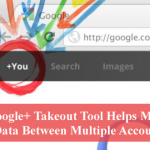
According to reports from Reuters, the social network leader employs and automated software to seek out inappropriate language in an attempt to snare sexual predators, the technology analyzes chats for certain phrases and vulgar words which may indicate something is wrong with the exchange.
The new gadget about the company’s monitoring system comes from a Reuters interview with Facebook Chief Security Officer Joe Sullivan. Besides, depending on the language, the social network contacts the authorities when a conversation has been flagged as potentially criminal activity, suspicious exchanges will be reported to police, he added.
Here is the lead-in to the Reuters story:
“A man in his early 30s was chatting about sex with a 13-year-old South Florida girl and planned to meet her after middle-school classes the next day. Facebook’s comprehensive but little-discussed technology for scanning postings and chats for criminal activity automatically flagged the conversation for employees, who read it and quickly called police. Officers took control of the teenager’s computer and arrested the man the next day.
The software focuses more on conversations between people who do not have regular interaction. For instance, if two users are not friends, and only recently became friends, have no mutual friends, interact with each other very little, have a significant age difference, and/or are located far from each other, the tool pays particular attention.
In fact, law enforcement agents have commended Facebook for the speed of their response.
“There are companies out there that are doing a very good job, working within the confines of what they have available,” said FBI agent Brooke Donahue.
“There are companies out there that are more concerned about profitability.”
Facebook is yet to respond to our request for comment, but in the Reuters article Facebook’s chief security officer Sullivan explained the move, “We have never wanted to set up an environment where we have employees looking at private communications, so it is really important that we use technology that has a very low false-positive rate.”
According to Facebook’s page focused on how it works with law enforcement agencies, the social media humongous says it will share information about its users when it believes it is necessary to prevent fraud.
It says: “We may disclose information pursuant to subpoenas, court orders, or other requests (including criminal and civil matters) if we have a good faith belief that the response is required by law. This may include respecting requests from jurisdictions outside of the United States where we have a good faith belief that the response is required by law under the local laws in that jurisdiction, apply to users from that jurisdiction, and are consistent with generally accepted international standards.
“We may also share information when we have a good faith belief it is necessary to prevent fraud or other illegal activity, to prevent imminent bodily harm, or to protect ourselves and you from people violating our Statement of Rights and Responsibilities. This may include sharing information with other companies, lawyers, courts or other government entities.”
While extensive details of the tool are still scanty, it is a well-known fact that Facebook cooperates with the police, since, like any company, it has to abide by the law. In fact, just a few months ago, Facebook complied with a police subpoena by sending over 62 pages of photos, Wall posts, messages, contacts, and past activity on the site for a murder suspect.
Sophos’ senior security consultant Graham Cluley said, “It should not come as surprise to anyone that Facebook is trying to make its site a safer place by monitoring for illegal and suspicious behaviour which might bring it into disrepute.
“Obviously we have to hope that Facebook acts responsibly, and puts measures in place to prevent inappropriate monitoring – or risk a backlash from users.”


